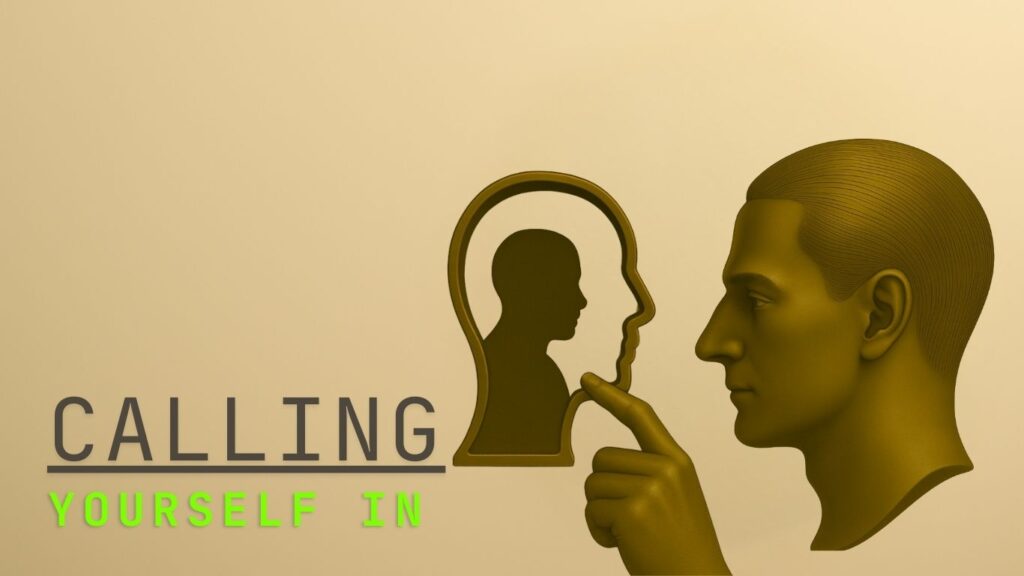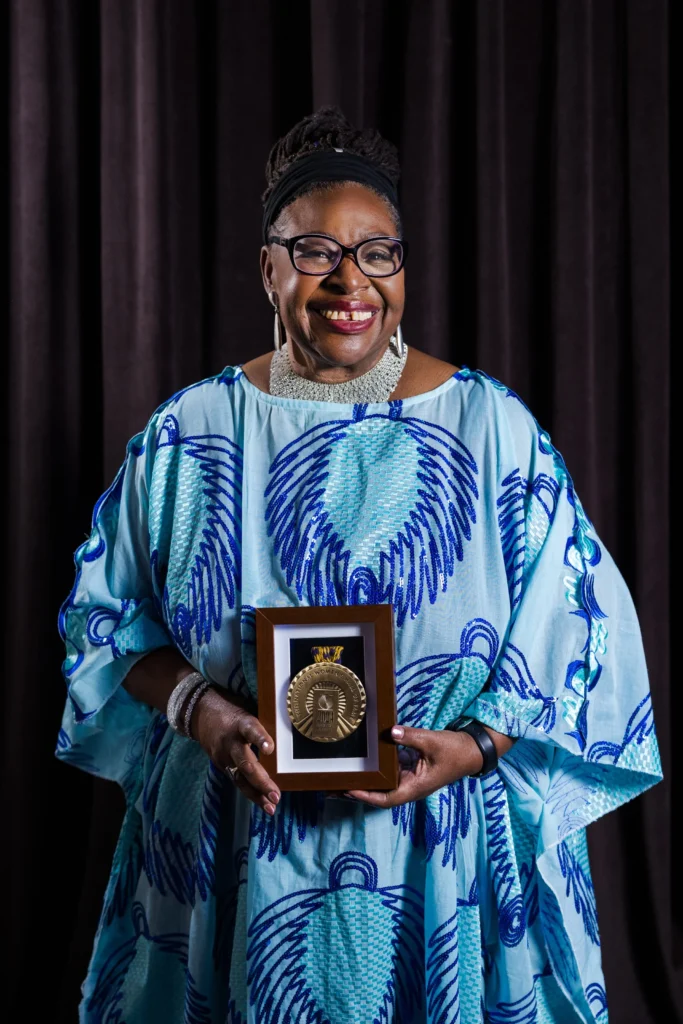Win at Life

Calling Yourself In
Definition
Calling yourself in is the act of noticing, owning, and gently correcting your own behaviour when it drifts away from your values. It’s a private, self-led form of accountability – the opposite of denial, but without beating yourself over the head with the guilty stick.
What it is – and why it’s useful
Most of us are familiar with the phrase “calling someone out” – usually public, often pointed, and rooted in holding others accountable for their actions or impact.
It does feel like we’re living through a ‘calling people out’ era, where public accountability is often loud, swift, and tangled up with cancel culture. It’s the stocks and public beheadings of our times. At times it’s entirely correct and helpful, but it can also veer into the theatrical or punitive. Whether it’s on social media, in group chats, or around the dinner table, there’s a cultural and cross-generational tendency to spotlight others’ mistakes or contradictions – sometimes helpfully, sometimes harshly.
But calling yourself in is a gentler, lynch-mob-free, more inward-looking evolution of that idea.
The term emerged as a conscious counterpoint to cancel culture and performative outrage. It was first popularised by social justice educator Loretta J. Ross, who advocates for calling people in rather than out – meaning: engaging with compassion, curiosity, and the possibility of growth.
While Ross was originally referring to how we speak to others, the idea has since been adopted more broadly. And when we flip it inward, it becomes an ethical superpower: a way of checking ourselves, not to criticise or shame, but to realign.
Calling yourself in means catching those small moments where your words, choices, or tone don’t quite match the person you want to be, giving yourself a little ‘firm but fair talking to’ and gently stepping back to where you want to be.
No drama, social media apology or explanation needed – just a personal course correction, using your internal ethical satnav:
“At the next available opportunity, make a U-turn/get off your high horse/stop being a fanny” .”
Real-life examples
- You find yourself gossiping – and halfway through, and what starts as funny veers into full-blown ‘mean girl’ roasting. You check yourself, “That was unkind, my bad.” That’s calling yourself in.
- You say you value ‘being present’, but you’re scrolling while your partner’s talking. You turn off your notifications, put your phone away and say, “Sorry, I wasn’t listening properly – go on.” That’s calling yourself in.
- You tell others to rest more, but you’ve worked through lunch three days straight. You realise – and go outside. Even for ten minutes. Even that is a form of calling yourself in.
The point is not to be perfect or harsh on yourself, but to keep one eye open for double standards or less-than-great behaviour on your part.
Try this today
Next time you feel that uncomfortable flicker – that says “Hmm. I could probably do better, here.” – pause.
Ask:
- Is this aligned with who I want to be?
- Am I acting from ego, fear, or habit?
- What would future-me wish I’d done in this situation?
Then you have the opportunity to adjust, however slightly.
Some things to think about
- Calling yourself in builds confidence. No external validation needed.
- It models accountability to others – especially if you name it out loud.
- If you never feel the need to call yourself in… you might not be paying close enough attention. Or you might be stuck in defence mode.
- This is definitely not about shaming yourself; it’s about regular check-ins with your own values.
You don’t need to announce it on social media. Just be it. That’s the work.
Optional challenge
This exercise is adapted from behavioural self-monitoring tools commonly used in therapy and coaching — particularly cognitive behavioural approaches. It’s a subtle but powerful way to build awareness, embed new habits, and reinforce personal responsibility without needing to rely on guilt or external accountability.
For one day, carry a small stone, coin or token in your pocket.
Each time you catch yourself and adjust, move it to the other pocket.
By evening, see how many quiet moments of integrity you clocked.
(You’ll be surprised how satisfying it feels.)
A Buddh-ish take
“As a solid rock is not shaken by the wind, the wise are not shaken by praise or blame.”
– The Dhammapada
Being ethical isn’t about looking good. It’s about being steady and consistent with your actions, even when nobody’s watching. Especially when you catch yourself drifting, and bring yourself back.

